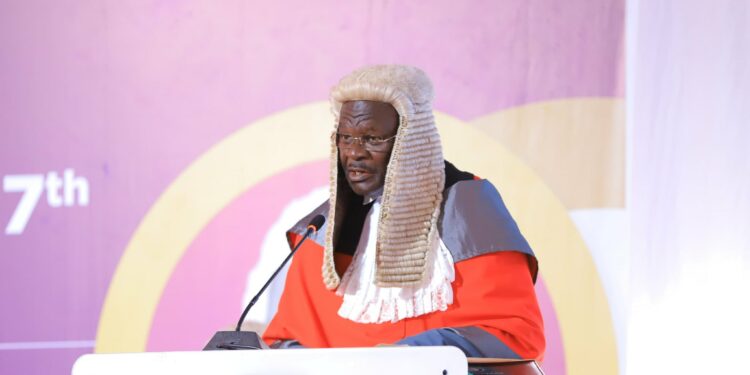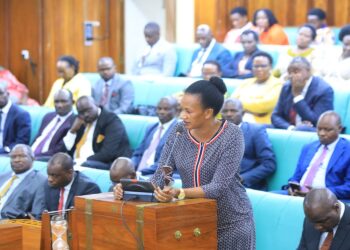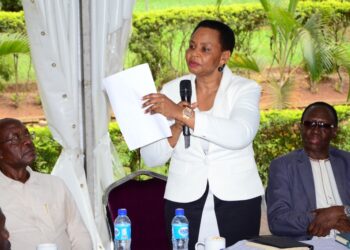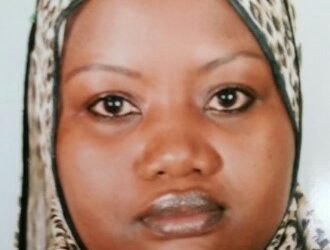On September 20, 2024, Ugandans together with the Judiciary commemorated the life and legacy of the courageous Arbiter Benedicto Kagimu Kiwanuka, Uganda’s first Chief Justice.
The 7th annual Benedicto Kiwanuka Memorial Lecture this time around took place at the newly inaugurated Judiciary Headquarters in Kampala where Uganda’s Guardian of Constitutional Order Justice Alfonse Owiny-Dollo verbatim urged all judicial officers to demonstrate people-centered justice all everything they happen to do.
In his keynote address, the Supreme Arbiter Alfonse Owiny-Dollo paid tribute to Kiwanuka, whose unwavering dedication to justice led to his tragic abduction and disappearance under Field Marshal Idi Amin Dada’s regime in 1972. Describing Kiwanuka as a champion of justice, Owiny-Dollo remarked, “We gather here today to honor Chief Justice Benedicto Kiwanuka for his sacrifice and endurance in advancing the cause of justice and defending the rule of law in our land—for which he paid the ultimate price.”
Kiwanuka’s story is one of courage and commitment. After serving as Uganda’s first Chief Minister and later as Prime Minister, he was appointed Chief Justice in 1971. His defiance of the brutal Amin regime, particularly in handling politically sensitive cases like that of Daniel Stewart, a British national detained at the time, led to his forced removal from office. Despite the risks, he remained steadfast in his commitment to ensuring that the Judiciary upheld its constitutional mandate to deliver justice.
This year’s memorial lecture, themed “Benedicto Kiwanuka: Promoting a People-Centred Approach to Justice,” centered on the need for justice systems that prioritize the needs and aspirations of ordinary citizens. The leader of the Bench, Justice Owiny-Dollo emphasized, “The life experience of Benedicto Kiwanuka is an inspiration for us to place the people’s interests at the center of our pursuit of justice.”
Owiny-Dollo used the occasion to highlight Uganda’s ongoing judicial reforms aimed at improving access to justice. He pointed to the Judiciary’s Transformation Agenda, which focuses on reducing case backlogs and enhancing accessibility by building more courthouses and expanding the use of ICT. “We are making every effort to bring court services closer to our people so that access to court is accorded equal importance with access to safe water,” said the Chief Justice.
One of the key innovations discussed was the introduction of the Electronic Court Case Management Information System (ECCMIS), which has already had a significant impact on case management. “The introduction of ECCMIS has brought home to our people benefits such as increased case filing, transparency in managing case information, and cheaper case processing costs,” Owiny-Dollo noted, adding that it has made virtual hearings more common, reducing litigation costs for many Ugandans.
The event also celebrated the success of Uganda’s growing reliance on Alternative Dispute Resolution (ADR) mechanisms, such as mediation and plea bargaining. During a dedicated ADR week in August 2024, the Judiciary resolved 235 cases across multiple courts. “This unprecedented success rate is an eye-opener to all of us, that ADR can perform miracles in expediting justice,” the Chief Justice remarked.
The day’s proceedings culminated in the presentation of the prestigious Benedicto Kiwanuka Award to retired Deputy Chief Justice Seth Manyindo and retired Principal Judge James Ogoola, in recognition of their principled leadership in Uganda’s Judiciary.
Reflecting on the importance of judicial integrity, Owiny-Dollo called on all judicial officers to emulate the forthrightness of these honorees, noting that such values are crucial to building a just society.
As the Judiciary continues its transformation, Principal Jurist Owiny-Dollo expressed optimism about the future, stating, “With further budgetary support, it is possible to attain the much-cherished dream where a litigant can walk to court, testify, and walk back home. It is through such provision of access to justice that we shall have truly honored the memory of Chief Justice Benedicto Kiwanuka.”
In the same line, Deputy Chief Justice Richard Butera also re-echoed the significance of ADR mechanisms revealing that it’s the most used mechanism of justice in Uganda.
“The Hague Institute for Innovation of Law (Hill) 2024 Survey Report indicates that 90% of justice seekers in Uganda rely on the informal justice sector, such as direct negotiations, mediations by family members and friends, and Local Council Courts instead of going to formal Courts. The report revealed that only 10% seek justice through the Courts. The report calls upon us to support Alternative Justice Interventions which are more popular and people-favored to attain justice satisfaction…..” he said
Second-in-Command of the Judiciary also revealed that the Judiciary held a Case Settlement Week that was held between the 5th to 9th of August 2024. This was a pilot program in which the Court of Appeal, Civil, Commercial, Family, and Land Divisions of the High Court; the High Court Circuits of Fort Portal, Gulu, Masaka, and Mukono; and the Chief Magistrate’s Courts of Makindye and Mengo, participated. In five days the pilot Courts were able to dispose of two hundred thirty-seven (237) cases through mediation. “We have learned lessons and we shall implement them in the short term.”
“The Judiciary will continue to hear cases as we have done before, but we shall also enhance the use of Alternative Dispute Resolution (ADR) and Alternative Justice System (AJS) at all Court levels to promote a people-centered approach to justice. We need your support to achieve this noble goal.”
Meanwhile, the memorial lecture reaffirmed Kiwanuka’s influence on Uganda’s legal landscape and served as a powerful reminder of the importance of defending judicial independence and human rights, even in the face of adversity.
Do you have a story in your community or an opinion to share with us: Email us at editorial@watchdoguganda.com














